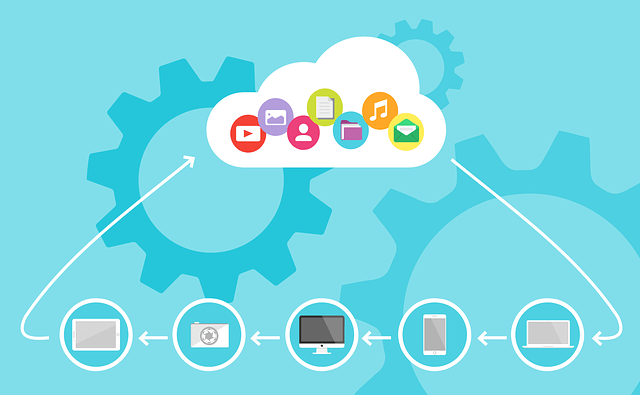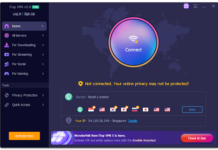The growth of cloud computing has triggered a dramatic increase in energy consumption and its effect on the environment in terms of carbon footprints. To lower the power consumption, it’s important to develop some energy-efficient solutions. That’s why there is a lot of emphasis on green computing in the business sector.
Green computing is the practice of carrying out policies and procedures to improve the efficiency of computing resources. It can help minimise the energy consumption and environmental impact of the utilisation of computing technologies.
The objective of green cloud computing is to foster the recyclability or biodegradability of defunct products and factory waste. This can be achieved by reducing the use of hazardous materials and maximising energy efficiency during the product’s lifetime. Now, this technology has been extended to the mobile cloud as well, considering energy consumption is a concern that exists in mobile cloud technology as well. Let’s delve further into the topic.
The Implementation of Green Cloud Computing on Mobile
The energy efficiency of mobile devices is an important factor since cloud computing doesn’t allow you to run existing applications with low energy. So, one of the challenges of mobile cloud computing is to supply and save energy. There are solutions for energy optimisation which can be efficient in reducing power consumption to a great extent. This is where green cloud computing steps in.
Even after the exponential growth in the number of smartphones in recent years, the energy capacity constraints for these devices hasn’t been resolved entirely. Moreover, the global demand for green Information and Communication Technology (ICT) prompts the researchers to think of cloud computing as a new computing paradigm. Researchers have proposed new green solutions that save smartphones’ energy and at the same time, achieve the green ICT goal.
This allows you to gain a little perspective on how energy efficiency can be achieved on the mobile cloud through green computing. Now, let’s move on to discuss both green cloud computing and mobile cloud computing in detail as elaborated in the study titled “Comparative Study between Green Cloud Computing and Mobile Cloud Computing”.
Green Cloud Computing
Green computing is the environmentally conscious and eco-friendly use of computers and its related resources. It’s also described as the study of designing, engineering/manufacturing, using and disposing of computing devices in a way that lowers their environmental impact.
Many IT vendors and manufacturers are continuously investing in designing energy-efficient computing devices, minimising the use of hazardous materials. They are also encouraging the recyclability of digital devices and paper.
Green computing is also acknowledged as green information technology (green IT). Green computing, or green IT, aims to achieve economic viability and boost the way computing devices are used. Green IT practices involve the development of environmentally sustainable production practices, energy-efficient computers and enhanced disposal and recycling procedures.
Advantages of Green Cloud Computing
- Automatic Updates
- Ease of Use
- Disaster Relief
- Remote Access
- Self-service provisioning
- Scalability
- Reliability and fault-tolerance
- Skills and Proficiency
- Response Time
- Increased Storage
- Mobility
Security Concerns Related to Green Cloud Computing
There have been surveys that categorise security threats in the cloud, depending on the nature of the service delivery models. However, security at different levels like Host level, Network level and Application level is necessary to keep the cloud up and running consistently. As per these different levels, various types of security breaches may take place.
There are four types of issues that come to the fore while discussing the security of a cloud.
- Data Issues
- Privacy issues
- Infected Application
- Security issues
Also Read: Latest Technological Trends in the Business Industry
Solutions to Security Issues in Green Computing
Monitor the data access
Cloud service providers have to be sure about what data is being accessed for what purpose. For instance, many website or server had security grievances regarding snooping activities by many people like listening to voice calls, reading emails and personal data etc.
Control the consumer access devices
Cloud service providers have to make sure the consumers’ devices or points like personal computers, virtual terminals, pamphlets and mobile phones are secure enough. The user computing devices should be managed properly and secured from malware functioning and should support advanced authentication features.
Share demanded records and monitor the data deletion
If the consumer has to report its compliance, then the cloud service provider will share the diagrams and any other details or provide audit records to the consumer. Also, check the proper deletion of data from shared or reused devices. Many service providers don’t offer the proper removal of data from drives each time the drive space is abandoned. Consumers must insist on a secure deletion process and have that process written into the contract.
Security checks events
Make sure that the cloud service provider presents sufficient details about the fulfilment of promises, reporting contingency and break remediation. These security events will elaborate on responsibility, promises and actions of the cloud computing service provider.
Mobile Cloud Computing
Mobile cloud computing presents the connection between cloud computing and mobile networks to offer benefits for mobile users, network operators, and also cloud service providers. Cloud computing comes into the picture when tasks and data are kept on the internet instead of on individual devices, offering on-demand access. Mobile apps may use the cloud in case of app development and hosting.
A number of distinguished characteristics of hosted apps make the mobile cloud different from regular cloud computing. Mobile apps may be more dependent on the cloud to present much of the computing, storage, and communication fault tolerance than normal cloud computing does.
Also Read: Step by Step Guide to Back Up WordPress For Free
Advantages of Mobile Cloud Computing
- Improving data storage capacity and processing power
- Extending battery lifetime
- Security Issues in mobile cloud computing
- Improving reliability
Cloud computing has multiple issues which can cause reluctance or fear in the consumer base that may include students seeking assignment help online. Some of these concerns are privacy, data ownership and security. In fact, these concerns are particularly relevant to mobile devices. Now, let’s ponder over some of these issues, and techniques used to deal with them.
- Privacy
- Data Ownership
- Data Access and Security
The solution to security issues in mobile cloud computing
Individuals and enterprises leverage benefits for storing the bulk of data or applications on a cloud. However, concerns regarding their integrity, authentication, and digital rights must be taken care of.
Integrity: Every mobile cloud user must make sure of the integrity of their information saved on the cloud. Every time the mobile cloud is accessed, it has to be authenticated and verified.
Authentication: Different authentication mechanisms have been presented using cloud computing to secure the data access appropriate for mobile environments. For instance, the use of log-in IDs, passwords or PINS, authentication requests, etc.
Digital rights management: Illegal distribution and piracy of digital contents like video, e-book, image, audio and programs become more and more popular. Some solutions like provision of encryption and decryption keys to safeguard these contents from illegal access are implemented. The process of coding or decoding must be carried out before any mobile user can have access to such digital contents.
In conclusion,
Researchers are still working on a concrete outcome for implementing green cloud computing and mobile cloud computing. However, there’s no denying that fact that merging the two technologies can promote the sustainable use of cloud computing.











